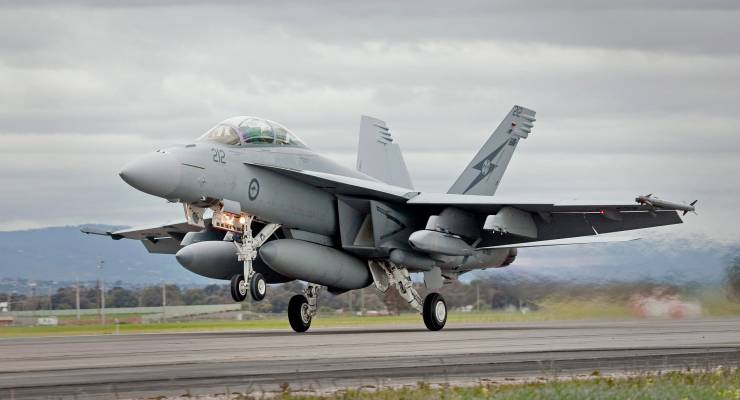
In the old days there was what you might call vanilla protectionism: old-fashioned tariff walls and import quotas designed to shield local industries from cheaper, better products. Then there was new protectionism: fewer tariffs and trade barriers, but far more taxpayer handouts to industries to keep them operating here. And while vanilla protectionism was killed off for the most part, new protectionism survived well into the 2010s, primarily in the automotive industry, until the Abbott government correctly cut off the flow of handouts to multinationals.
Recently, new protectionism has revived in Australia, in the bipartisan push for an expanded defence industry. Except, it’s more accurately called dumb protectionism, because it’s massively more expensive than automotive industry subsidies: the cost per job of paying 30-40% more to build major naval construction projects locally runs from $100,000 per job to over $1 million per job. That compares to, according to the Productivity Commission, around $18,000 per job for automotive assistance, and represents “a major step back from the historical reduction in using government procurement preference as industry policy.”
Not merely are we paying ten, twenty, perhaps 50 times more per job under dumb protectionism, we’re propping up far fewer jobs. While the car industry employed perhaps 50,000 people a decade ago, the defence industry employs around 20,000 people — although no one’s too clear on the numbers and it may be substantially less. Admittedly, after yesterday’s defence industry announcement, there’ll be 20 more jobs in Canberra in the “Australian Defence Export Office” which, according to the government, “will be the lynchpin of a whole-of-government approach to support Australian defence export success”, supported by an “Australian Defence Export Advocate”. There’s already an Australian Military Sales Office within Defence, but never mind that. The Export Office will have 20 people in it, although apparently there’s already ten who work on exports in Defence, so if your goal is to get on the sweet gravy train of arms industry contracts, you better apply quick.
The government will also spend $20 million over four years for handouts to defence exporters, devoted to the sort of bureaucratic drivel that makes me glad that this week I’m celebrating my tenth anniversary out of the Public Service.

The guts of the initiative, though is an extra $3 billion to one of the more secretive agents of protectionism in Australia, the Export Finance and Insurance Corporation, which lends to exporters who can’t get loans at commercial rates. In effect, there will be a $3 billion fund for concessional loans to arms exporters who would otherwise have to borrow money at higher rates from the market.
As The Australian’s David Uren explained today, the government’s professed ambition to become a top-ten arms seller is nonsensical when we only flog $100 million worth of gear overseas. Of course, those new bureaucrats in defence can always try to sell more weapons to regimes that other countries refuse to sell to. Two weeks ago, Germany decided to ban weapons sales to a major customer, Saudi Arabia, because of the Saudis’ ongoing war crimes and slaughter of children in Yemen. Defence Industry Minister Christopher Pyne has visited Saudi Arabia trying to sell arms to a regime that has been responsible for 10,000 deaths. This isn’t just dumb protectionism, it’s immoral protectionism.








Perhaps you should have a rethink Bernard…it would have been far better for Oz to continue subsidising car manufacturing, both economically and morally, since it now seems obvious that governments here are hellbent on giving our money away on these dangerous pursuits.
Cars kill less people than weapons do???
If they’re serious about subsidising arms exports that’s shameful. No government with an interest in selling arms to belligerent states can have an interest in brokering peace between them. The sale of devices which, when used as directed, kill people should never be encouraged as a money earning industry even if, in the absence of strong peace treaties, preparation for self defence is inevitable. But what aspect of self defence justified Australian involvement in the invasions of Iraq and Afghanistan?
Indeed. And Oz cars were actually useful. There are no positive stories about weapons.
“Private Jobson Grothe reporting for duty Sir. Who can I kill first?”
On the bright side there’ll be rules to stop these weapons being used by the wrong people for the wrong purposes …… surely? …. Like “AWB – Australian Weapon Bans”?
How was ISIS armed?
How indeed was ISIS armed? Do you remember all those pictures of their columns of brand new Toyota utes? They didn’t have a chook raffle to buy those. Now it’s being alleged that a power involving itself in the Syrian conflict and needing a proxy force has evacuated several thousand of them out of the way of capture by the Syrian Army or the Russians and relabelled them Free Syrian Forces or some such.
Ordnance (paid for) falling into “the wrong hands” :-
“Never mind. There’s plenty more where they came from. We can sell them replacements!”?
…. “Air dropped ordnance” of course.